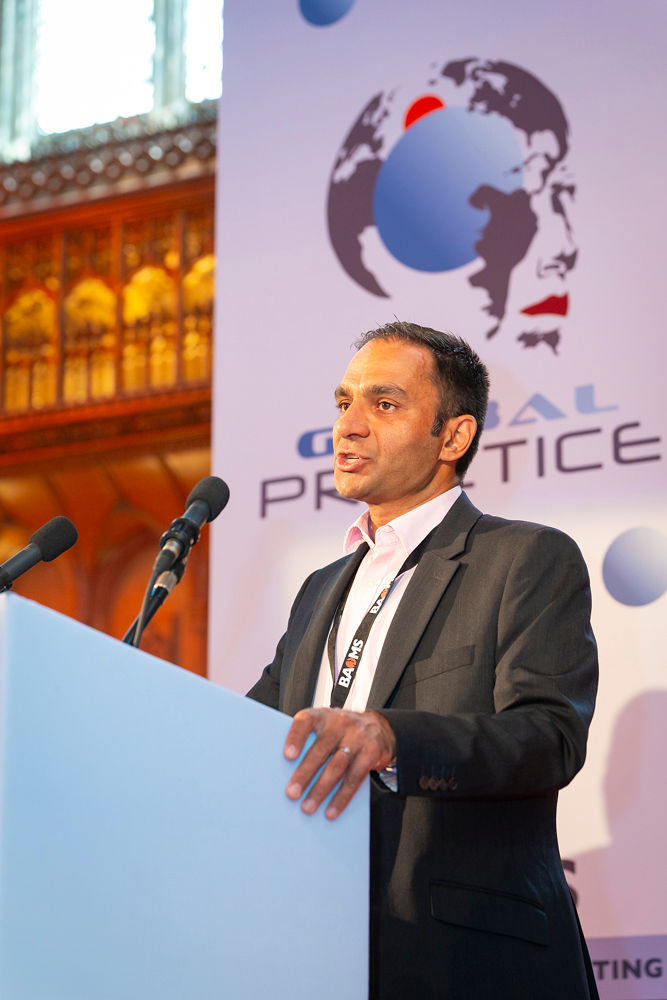Medical supply chains: labour rights abuses and sustainability challenges
26 June 2025

Professor Mahmood Bhutta, Chair in ENT Surgery at Brighton and Sussex Medical School, opened the BAOMS annual scientific meeting 2025. His President’s Lecture highlighted problems with environmental sustainability and labour rights in healthcare supply chains. It was hard hitting and concluded with a call for systemic change to address these issues.
Mahmood shared shocking statistics, such as the 20 million gloves that are used every day in NHS England, many unnecessarily. There is a view that they reduce infection, when the evidence does not back this: “We only need gloves where there is contact with potentially infected bodily fluids or broken skin, yet many NHS staff put on gloves with each patient interaction.”
As well as contributing to escalating costs and creating unnecessary waste, these gloves carry a human rights cost. Many are made using forced labour, exploiting often migrant workers in factories without adequate protection. Single-use gowns are also made under similar forced labour conditions, yet reusable drapes have no evidence of negative impacts on patient safety (although industry often advertises otherwise). In Austria almost all drapes and gowns are reusable. If the NHS were to change suppliers and encourage reusable versions of many products, it would avoid abuse of human labour, reduce environmental costs, and save money.
Professor Bhutta has been generating data as evidence against wasteful practices. He is an adviser to Design for Life, a UK Government initiative to minimise single use medical products and also to NHS Supply Chain, which manages the sourcing and supply of healthcare products for NHS trusts, and the Greener NHS, which shares ideas on how to reduce the impact on public health and the environment, save money and reach net carbon zero.
He says: “The agendas that I’m talking about are broad and reaching out to various leaders in specialities is important to me. I’d like to affect change, and to do this we have to reach beyond our small tribes and work together. Surgeons should recognise that they are a natural authority: the truth is if a surgeon says in theatre we must do this, then it happens.”
In line with the conference theme of Global Practice, Mahmood’s lecture underscored that sharing information about good practice can bring positive changes when it comes to environmental awareness and supply chain issues. We can learn and improve practice by looking beyond borders. For example, in the UK single use plastic aprons are used without evidence that they reduce infection. In some countries, including Canada, they are not used, with no detrimental effects.
Professor Bhutta says: “Whether in Canada or Austria or in lower resource settings we should look to the data to learn useful lessons. In India there is a 30-fold lower carbon output in cataract surgery compared with the UK and we could learn from their example. There is often a suggestion that lower resources equate with lower quality of care, but this is not necessarily true. I’ve worked in lower resource settings with amazing standards of care and learned a great deal in those instances.”
When asked if he is optimistic that we will see change, Mahmood concludes that he is, but that many efforts need to be scaled up. He concludes: “Until now it has been individuals pushing against the system, but this is starting to change. Some NHS Trusts are moving to reusable products and some companies are moving away from insisting on discarding products after use. But we need a greater scale and speed. The infrastructure needs to change too, so that single use is no longer the default option.”
View Other News